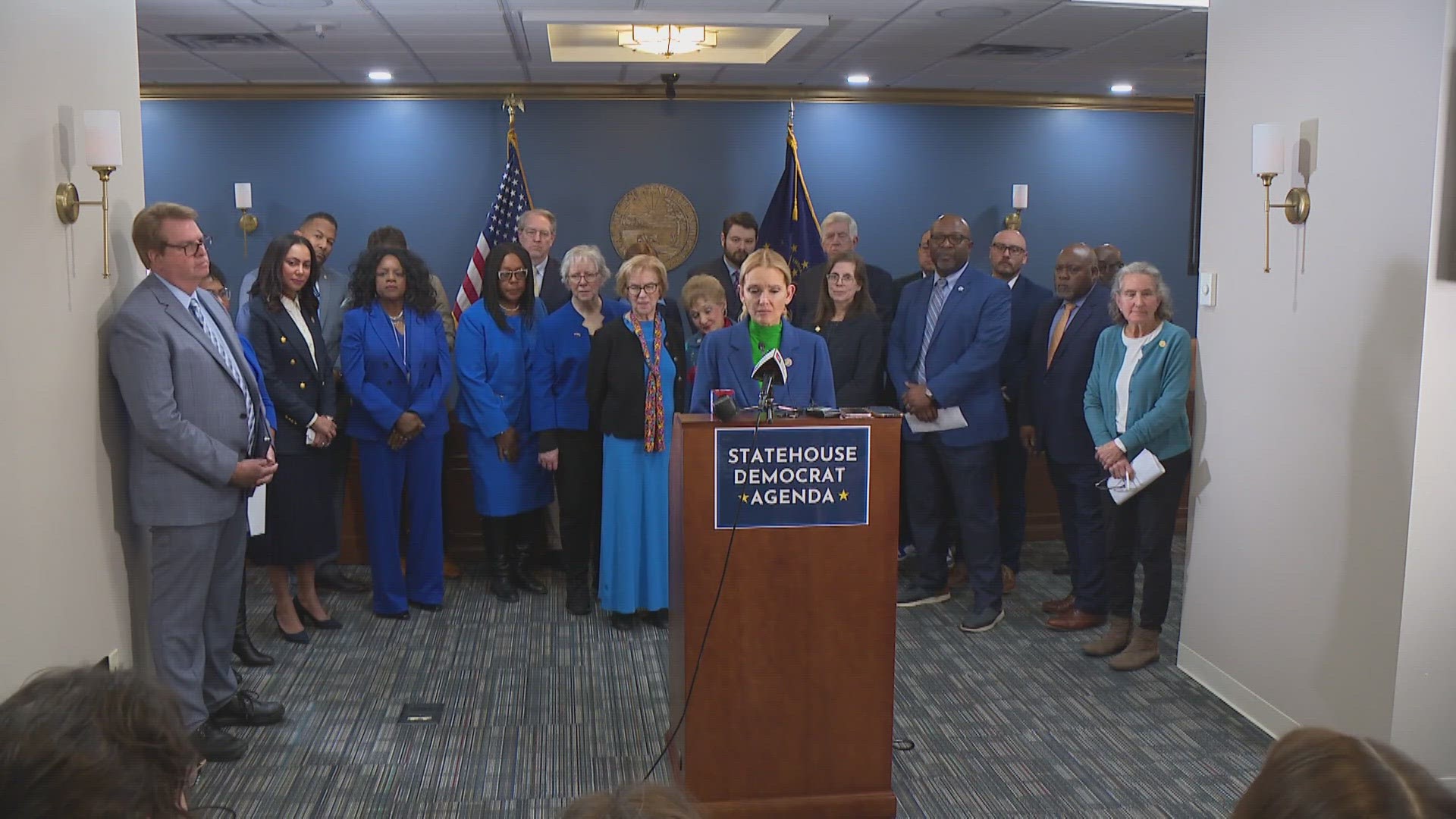INDIANAPOLIS — Lawmakers on both sides of the aisle laid out their top item agendas Thursday at the Indiana Statehouse.
Both said student literacy was at the top of those agendas.
Earlier this week, Gov. Eric Holcomb said it's at the top of his agenda, too.
Senate Bill 1, authored by State Sen. Linda Rogers, R-District 11, would require schools to check reading proficiency as early as kindergarten to make sure students are on track to pass the IREAD test by the end of third grade. If they weren't, schools would be required to offer help to get them ready.
Schools would also be required to give the IREAD test at the end of second grade, instead of third. Students who pass the test in second grade wouldn't have to take it again.
Students who failed the test could get help between second and third grade before taking the IREAD test again. Once in third grade, they'd have three chances to pass it, before the school would consider holding them back a grade.
If students could pass the state's math test, but not the IREAD test, they would be passed on to fourth grade, with reading support.
"This is not a retention bill. Retention is the absolute last resort after we've exhausted all the methods to help struggling readers," said State Sen. Jeff Raatz, R-District 27. "We believe retention is a necessary policy for students who can't read by the end of third grade if they don't qualify for an exception."
Those exceptions would include if a student has an IEP or has English as a second language.
Democratic lawmakers from both the House and Senate believe student literacy needs to be addressed, too, but say major changes to policies surrounding literacy shouldn't happen before the results can be studied.
They're proposing a five-year commission with the Department of Education to track the progress of education standards already in place.
They also say Senate Bill 1 doesn't give parents a say in what happens to their child.
"Last session, we talked about rights, especially when it comes to voices in education settings, and that is not emphasized in this piece of legislation," said State Sen. Andrea Hunley, D-District 46. "Where is the parent's voice in what happens with their child's educational journey?"
Lawmakers from both sides of the aisle addressed access to early childhood care as another top issue.
Senate Republicans called child care access an infrastructure issue that effects all areas of Indiana's economy.
Senate Bill 2, authored by State Sen. Ed Charbonneau, R-District 5, would expand the criteria for who can work at child care centers. It also establishes a pilot program for three smaller child care centers in rural areas with child care deserts.
"It's going to make a difference for child care, for parents of children and for employers in the state of Indiana," Charbonneau said of the bill.
Senate Republicans are also proposing Senate Bill 3 that would eliminate insurance companies requiring prior authorization before patients can go to the ER, a routine doctor's visit or get common prescription drugs.
"At the end of the day, those effected most are Hoosier patients, because prior (authorization) slows down or stops their ability to get care," said the bill's author, State Sen. Tyler Johnson, R-District 14.
In a joint press conference Thursday, Democrats from the House and Senate said they have several bills in both chambers that address child care access. They cited studies that show four out of 10 Hoosier children live in a child care desert.
"We will be pushing for expanded eligibility for child care, increased support for providers and the adoption of a universal pre-K program and proper funding to support a child care system that Hoosiers deserve," said State Sen. Shelli Yoder, D-District 40.
When it comes to health, Democratic lawmakers are calling for caps on insulin at $35, inhalers at $55 and epi pens at $25.
Democrats also said Indiana needs to allow voters to weigh in on issues like the legalization of cannabis by putting such issues up for a vote on the ballot.
"It's time for the will and the wishes of 'We The People,' the Hoosiers of the state of Indiana, to truly be realized and finally start to take precedence and leave the politicians and the politics up to the politicians," said Senate Minority Leader Greg Taylor, D-District 33.
Republicans have said many times they would not support a move for ballot initiatives.

